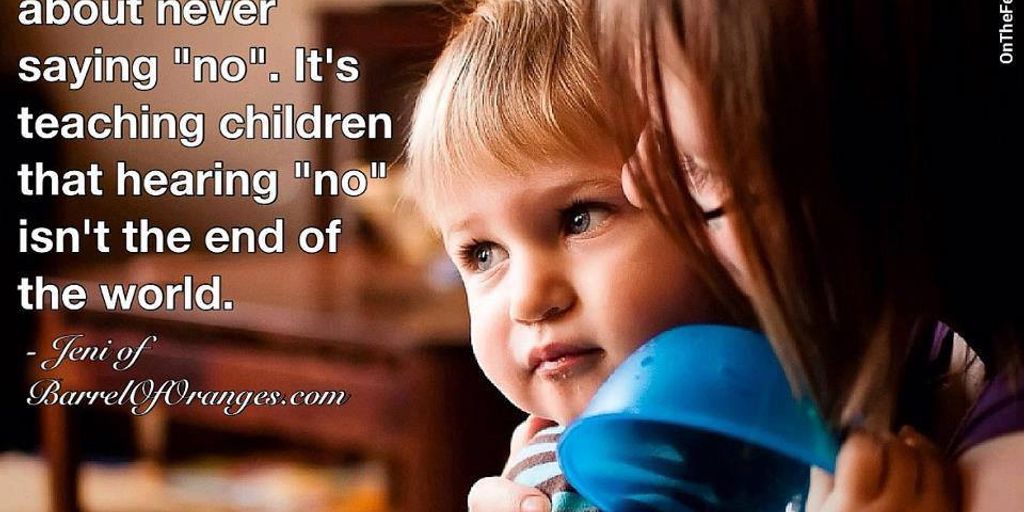
When it comes to raising children, parenting styles play a crucial role in shaping their development and overall well-being. A parenting style represents a set of attitudes, behaviors, and strategies that parents employ while raising their children. Understanding different parenting styles is essential for family and parenting coaches as they guide parents in navigating the challenges of raising children. This article will explore why parenting styles matter and the impact they can have on children.
Key Takeaways
- Understanding different parenting styles allows coaches to help parents identify their current style and assess its effectiveness.
- Parenting styles have a profound impact on children’s behavior, self-esteem, and overall development.
- Different parenting styles can shape children’s attitudes, beliefs, and values, influencing their emotional regulation, academic performance, and social interactions.
- Recognizing effective parenting styles can aid in the development of children’s developmental needs, academic achievement, and future professional prospects.
- Parenting styles significantly influence how children perceive themselves, interact with others, and develop essential life skills.
The Four Main Parenting Styles

The four primary parenting styles, as identified by researchers like Diana Baumrind, are authoritative, authoritarian, permissive, and uninvolved. Each of these styles is defined by unique patterns of behavior and interaction with children, focusing on dimensions of responsiveness and demandingness.
Characteristics of Authoritative Parenting
Authoritative parenting is often considered the gold standard of the four parenting types. This style balances high expectations with emotional support, fostering an environment where children feel valued and understood. Parents who adopt this style are both responsive and demanding, encouraging independence while maintaining clear boundaries.
Traits of Authoritarian Parenting
Authoritarian parenting is characterized by strict rules and high expectations, with little room for flexibility. Parents who follow this approach prioritize obedience and discipline over emotional connection, often leading to a more rigid family structure. While this style can result in well-behaved children, it may also stifle creativity and emotional growth.
Understanding Permissive Parenting
Permissive parenting, on the other hand, is marked by a high level of responsiveness but low demandingness. Parents who are permissive tend to be lenient, allowing children significant freedom and rarely enforcing rules. This approach can lead to a close parent-child relationship, but it may also result in children lacking self-discipline and responsibility.
The Uninvolved Parenting Style
The uninvolved, or neglectful, parenting style is characterized by a lack of responsiveness and demandingness. Parents who are uninvolved provide minimal guidance, nurturing, or attention, often leading to children who struggle with self-esteem and academic performance. This style is generally considered the least effective of the four.
Understanding these parenting styles can help parents reflect on their own approaches and make informed decisions that benefit their children’s development.
How Parenting Styles Affect Child Development
Emotional and Social Impact
Parenting styles significantly influence a child’s development in various areas, including emotional, academic, and social well-being. The way parents communicate, set boundaries, and respond to their children’s needs can have a lasting impact on their emotional, social, and cognitive development. Supportive parenting styles that are warm and responsive tend to foster better emotional regulation and social skills in children. Conversely, more rigid and authoritarian approaches may lead to higher levels of anxiety and difficulties in social interactions.
Academic Performance
Different parenting styles can shape children’s attitudes, beliefs, and values, influencing their academic performance. Authoritative parenting, which combines firm rules with clear boundaries, is often associated with better academic outcomes. Children raised in such environments tend to have higher self-esteem and are more motivated to succeed academically. On the other hand, permissive or neglectful parenting styles may result in lower academic achievement and a lack of motivation.
Behavioral Outcomes
The four parenting styles can affect child development differently, shaping child behavior and overall well-being. Authoritative approaches are often linked to positive outcomes, such as increased self-esteem and improved social skills. However, authoritarian and permissive styles may contribute to long-lasting impacts, such as increased risk-taking behaviors and lower self-discipline. Understanding how different parenting styles affect children can help parents make informed decisions and develop strategies that align with their parenting goals.
Blended Parenting Styles and Their Benefits
Combining Different Approaches
By adopting a blended parenting style, parents can create an environment that combines the best aspects of different parenting approaches. This method encourages individuality, fosters healthy communication, and promotes the overall well-being of the family. The ultimate goal of parenting is to raise happy, confident, and resilient children, and a blended parenting style can be a valuable tool on that journey.
Flexibility in Parenting
Blended parenting styles prioritize flexibility and open-mindedness. Parents who follow a blended approach recognize that no single parenting style fits every situation or child. Instead, they take the time to understand their children’s individual temperaments, strengths, and challenges. By doing so, they can tailor their parenting techniques to meet their children’s specific needs.
Adapting to Children’s Needs
A blended parenting style allows parents to draw from various styles such as authoritative, permissive, or authoritarian, depending on the circumstances. For example, parents may utilize positive reinforcement techniques from the authoritative style while also incorporating elements of permissive parenting that promote open communication and autonomy.
Blended parenting styles can also benefit from seeking guidance and support from professionals such as family coaches or therapists. These experts can provide insights, resources, and strategies to help parents navigate the challenges and complexities of blended parenting.
Recognizing and Adjusting Your Parenting Style
Self-Assessment Techniques
Understanding your current parenting style is the first step towards making any necessary adjustments. Self-assessment techniques can help you identify your approach and its effectiveness. Reflect on your daily interactions with your child and consider how you handle discipline, communication, and support. Are you nurturing and responsive, or do you set firm limits? This reflection can provide valuable insights into your parenting style.
Seeking Professional Guidance
Sometimes, it can be challenging to objectively evaluate your parenting style. Seeking professional guidance from a parenting coach or counselor can offer a fresh perspective. These professionals can help you understand the impact of your parenting choices on your child’s development and provide strategies for improvement. They can also assist in identifying your strengths and areas for growth.
Implementing Changes
Once you have identified areas for improvement, it’s time to implement changes. Start by setting clear and achievable goals. For example, if you want to be more nurturing, make a conscious effort to spend quality time with your child and offer positive reinforcement. If setting firm limits is your goal, establish consistent rules and consequences. Remember, flexibility is key; be prepared to adapt your approach as needed to meet your child’s evolving needs.
Recognizing and adjusting your parenting style is an ongoing process. It requires self-awareness, a willingness to seek help, and the ability to implement changes effectively. By doing so, you can create a more supportive and nurturing environment for your child’s growth and well-being.
Cultural Influences on Parenting Styles
Cultural factors play a significant role in shaping parenting styles and child outcomes. There isn’t a universal style of parenting that is always best. For example, while authoritarian parenting is associated with poorer academic achievement, this effect is less pronounced in Hispanic families.
Parental roles vary greatly across cultures, influenced by factors like societal values, beliefs about family structure, and economic conditions. These cultural norms can dictate the expectations and behaviors of both parents and children, leading to diverse parenting practices.
Parents often need to adapt their parenting styles when they move to a new cultural environment. This adaptation can involve blending elements of their original parenting style with those of the new culture to better meet their children’s needs. Flexibility in parenting is crucial for successfully navigating these changes.
Understanding the different parenting styles allows coaches to help parents identify their current style and assess its effectiveness. This knowledge empowers parents to make informed decisions and develop strategies that align with their parenting goals.
Long-Term Effects of Parenting Styles on Children
Emotional Well-Being
Parenting styles have a profound impact on children’s emotional well-being. Children who have authoritative parents tend to show the best outcomes, such as high self-esteem and good emotional regulation. On the other hand, authoritarian parenting can lead to issues like anxiety and depression. Permissive parenting might result in poor self-control and difficulties in managing emotions.
Career Success
The influence of parenting styles extends into adulthood, affecting career success. Authoritative parenting often fosters traits like responsibility and self-discipline, which are crucial for professional achievement. Conversely, children raised with permissive or neglectful parenting may struggle with motivation and goal-setting.
Relationship Building
Parenting styles also play a significant role in shaping how children form and maintain relationships. Authoritative parenting, which balances warmth and structure, tends to produce individuals with strong social skills and healthy relationships. In contrast, authoritarian or neglectful parenting can result in difficulties with trust and communication in personal relationships.
Understanding the long-term effects of different parenting styles can help parents make informed choices that benefit their children’s future well-being and success.
The Role of Parenting Coaches in Guiding Parents
Parenting coaches play a pivotal role in assisting parents to understand and improve their parenting techniques. By offering tailored guidance and support, these professionals help parents develop effective strategies that prioritize their children’s needs. Family and parenting coaches are instrumental in fostering a nurturing environment that promotes children’s well-being and development.
Conclusion
Understanding different parenting styles is crucial for both parents and those who support them, such as family and parenting coaches. Each parenting style—whether authoritative, authoritarian, permissive, or uninvolved—has unique characteristics and potential impacts on a child’s development. By recognizing and assessing these styles, parents can make informed decisions that align with their parenting goals and the needs of their children. This knowledge empowers parents to adopt more balanced and effective strategies, ultimately fostering better emotional, social, and cognitive outcomes for their children. As research continues to evolve, both parents and educators will benefit from a deeper understanding of how these styles influence children’s academic achievements and future professional prospects. In essence, a well-informed approach to parenting can significantly enhance a child’s overall well-being and success in life.
Frequently Asked Questions
What are the four main parenting styles?
The four main parenting styles are Authoritative, Authoritarian, Permissive, and Uninvolved. Each style represents a different approach to raising children and has distinct characteristics and potential effects on child development.
How do parenting styles impact children’s behavior and development?
Parenting styles significantly influence children’s behavior, self-esteem, and overall development. Different styles can shape children’s attitudes, beliefs, and values, affecting their emotional regulation, academic performance, and social interactions.
Can parents combine different parenting styles?
Yes, many parents adopt a combination of different parenting styles depending on the situation. Understanding the characteristics and potential effects of each style can help parents develop a more balanced approach.
Why is it important to understand different parenting styles?
Understanding different parenting styles allows parents to assess their current approach and its effectiveness. This knowledge empowers them to make informed decisions and develop strategies that align with their parenting goals, ultimately benefiting their children’s development.
How can parents recognize and adjust their parenting style?
Parents can recognize and adjust their parenting style through self-assessment techniques, seeking professional guidance, and implementing changes based on feedback and observation. Parenting coaches can also provide valuable support in this process.
What role do cultural influences play in parenting styles?
Cultural influences play a significant role in shaping parenting styles. Different cultures have unique norms and values that affect how parents raise their children. Understanding and adapting to these cultural differences can help parents develop more effective and culturally sensitive parenting strategies.






